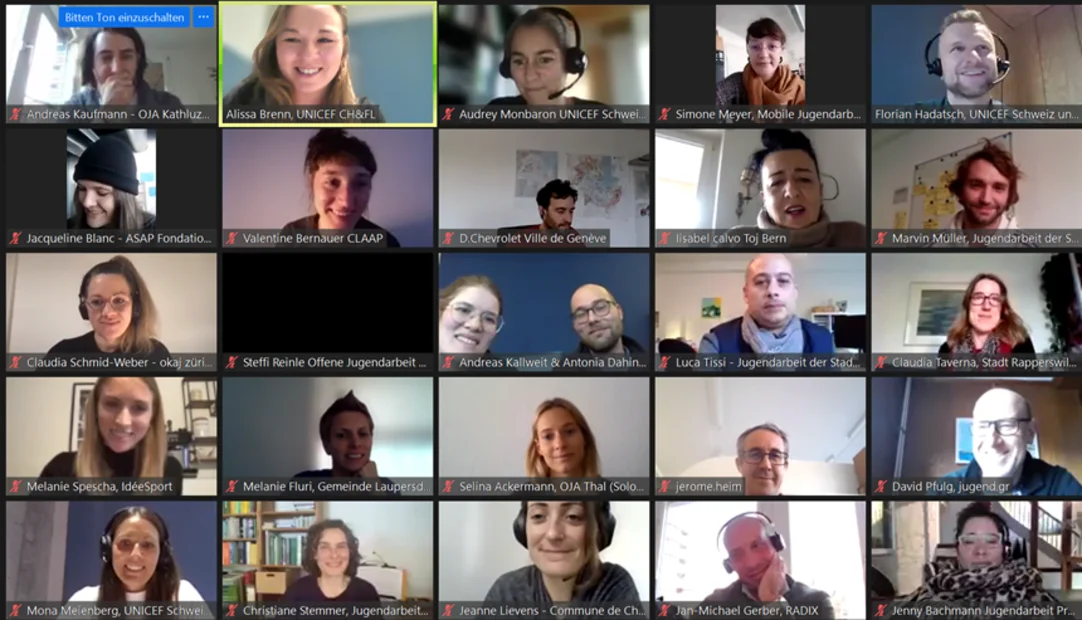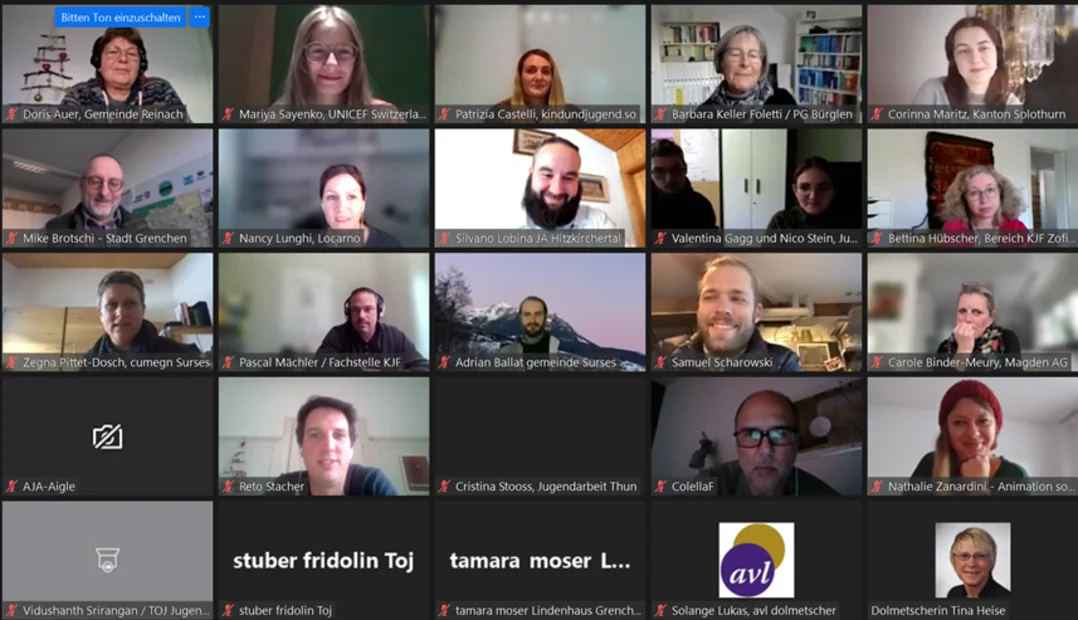On December 8, 2022, UNICEF Switzerland and Liechtenstein held an online event on the topic of “Young people in public spaces”. Alongside three short presentations, the main focus was on discussions between the more than 50 participants.
The communities we support as part of our Child-Friendly Cities initiative repeatedly tell us about complaints they receive regarding young people and their behavior in public spaces. Young people are often perceived as disruptive: They’re too loud, they leave rubbish behind, they behave badly.
In this webinar, we looked at how to deal with such usage conflicts, the potential offered by intergenerational use of public spaces, and the gaps and requirements in communities.
In her presentation, Claudia Schmid (OKAJ Zürich cantonal child and youth promotion organization) shed light on the term “public spaces” and discussed their relevance for young people: Public spaces are important educational spaces and thus an important part of young people’s lives. They are important places for learning and meeting others, and make a valuable contribution to their development. Claudia Schmid also presented the “Take a seat” campaign. (You can find her slides and the focus publication “Points of friction in public spaces” here.)
Silvano Lobina (Jugendarbeit Hitzkirchertal youth work organization) then presented a highly practical example of a usage conflict. A central square, open to the public but private property, is a popular meeting place for young people. Following complaints from shop owners and residents, a very restrictive set of regulations was displayed governing the use of the square. A round table session with key stakeholders, including young people, led to a joint set of usage regulations being drawn up.
Mona Meienberg (UNICEF Switzerland and Liechtenstein) then presented a solution from Triengen, a “Child-Friendly City”. The initial response to complaints about noise and littering was to put up signs prohibiting this behavior in public places. After young people stated their desire to get involved and present their views, a round table session was organized with young people, the municipal council and the youth commission. This produced long-term results and immediate measures. (You can find the slides here.)
The participants were then able to share their own experiences in nine breakout rooms, using the following key questions as a starting point for discussion: What are the challenges facing your community? Are there specific measures? How are complaints dealt with? What helped and what didn’t? What kind of support would be useful?
Finally, the participants all came together again to share the results of the small-group discussions with everyone else. It became clear that many communities face similar issues with regard to usage conflicts, but that there are a host of innovative solutions. Mutual dialog and the active involvement of young people are seen as particularly helpful. The participants also concluded that it is both sensible and important to invest in prevention and outreach work.
You can watch the webinar here:

